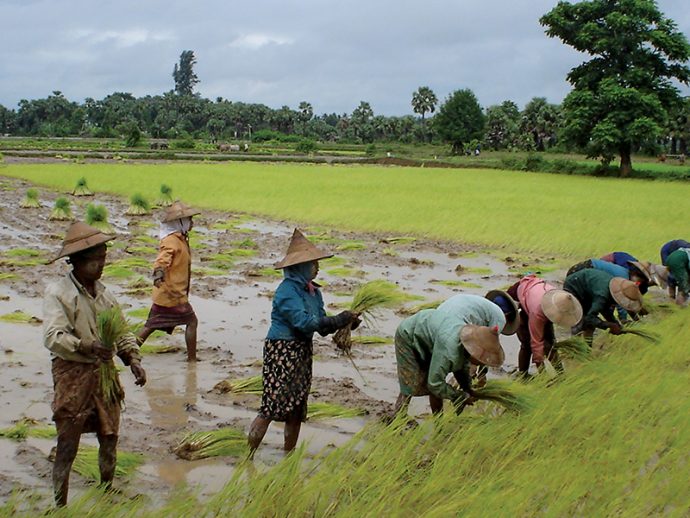Editor’s note: In WAG’s June “Explorations” issue, Audrey Ronning Topping wrote about China’s dream of a New Silk Road, now called the Belt and Road Initiative, a $1 trillion project that will connect 60 countries in Asia and Europe, along with Australia, by land and sea. But is President Xi Jinping’s dream also a nightmare for others? Audrey continues her report.
In a small village on the west coast of Myanmar, Carol Giacomo of The New York Times reports a cautionary tale of “promises not kept,” describing the destructive power of China’s construction frenzy and the trampling of farmers’ rights in the stampede for natural resources and profits.
The China National Petroleum Corp. and the Myanmar government installed an oil and gas pipeline from China across Myanmar. To accomplish this, the Chinese blew up a dam and the mango trees that supported it, flooding the farmlands with salty water and interfering with a river that provided irrigation. Tutin, a 50-year-old farmer, told Giacomo that farmers who once produced 1,000 bags of rice now produce half that amount. Some farms were ruined by the saltwater. These experiences are not unique. All along the pipeline route, Chinese project authorities confiscated farmers’ lands, even though laws forbid foreigners to own land in Myanmar, and paid a pittance for their property.
A village “watch committee” documented 102 cases of corruption or extortion. Environmental damage was hidden. Promises of 500,000 new jobs proved false. Giacomo reported that in addition to the pipeline, China plans to build two deep-water ports in the same area. The people expected the Chinese to behave with greater compassion for local concerns, but saw little hope that China would modify its behavior as it plowed ahead. The projects are expected to require thousands of acres of farmland. Noyli Lin, a villager told her, ”We are the real owners of the land, but they don’t care about us. The compensation they gave us is just a teacup for them.”
Other anxieties from Western countries concern China’s geopolitical ambitions. In January 2017, Xi called for countries to work together to tackle trade issues. “One should not just retreat to the harbor when encountering a storm, for this will never get us to the other shore of the ocean.”
Chinese firms hope to win many of the engineering projects — ports, roads, railways and pipelines — that the new “connectivity” will require. China could also tap into and exploit the natural resources in various African countries as it is doing in the Tibet Autonomous Region. However, China insists that its initiatives will benefit all of humanity.
At the first New Silk Road summit in Beijing in May, the European Union welcomed Xi’s Belt and Road Initiative. China experts say the global significance is underrated in the U.S. and that it will accelerate as the U.S. turns more insular under President Donald J. Trump. Louis Kuijs, at Oxford Economics in Hong Kong, said, “It is unfortunate that many U.S. diplomats … worked for years to push for TPP (the Trans-Pacific Partnership) and now it is torn apart.” He said the U.S. is turning its back on the rest of the world when it needs an open and engaged America. “It is understandable,” he said, “that China will fill those gaps with this Belt and Road Initiative. …It’s something the U.S. will later deeply regret.”
Meanwhile, according to The Wall Street Journal, China is gaining favor in Pakistan at U.S. expense. Xi has made Pakistan his flagship partner in a program meant to spread Chinese-built infrastructure and is staking a claim to supplant the U.S. with billions of dollars of investments, “an embrace that promises Pakistan economic benefits and saddles it with debt — ensuring the relationship will last.”
Ely Ratner of The Council on Foreign Relations summed it up this way: “The Chinese are winning the perceptions game, whatever the reality. That then leads to political outcomes, because people see the inevitability of China’s rise and China’s power.”
The expectations are that the initiative will expand China’s economic and geopolitical sway across the Middle East, Europe and Africa. If Trump turns inward and pushes an “America first” agenda of isolationism and protectionism, China’s trillion-dollar foreign policy will become even more significant.
The future of this world-shaking experiment encompassing a complex new paradigm of world leadership and economy is yet to be seen.




